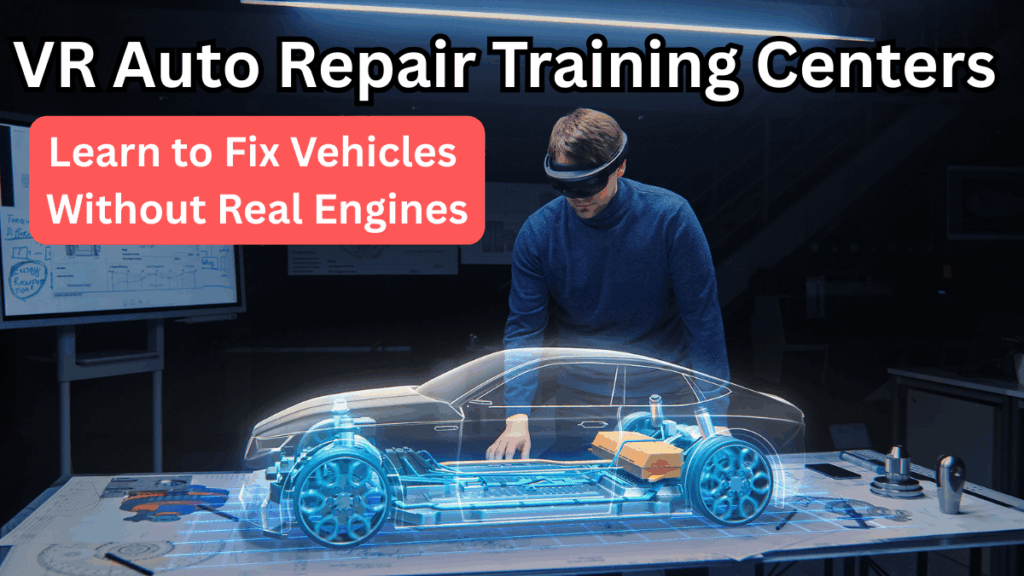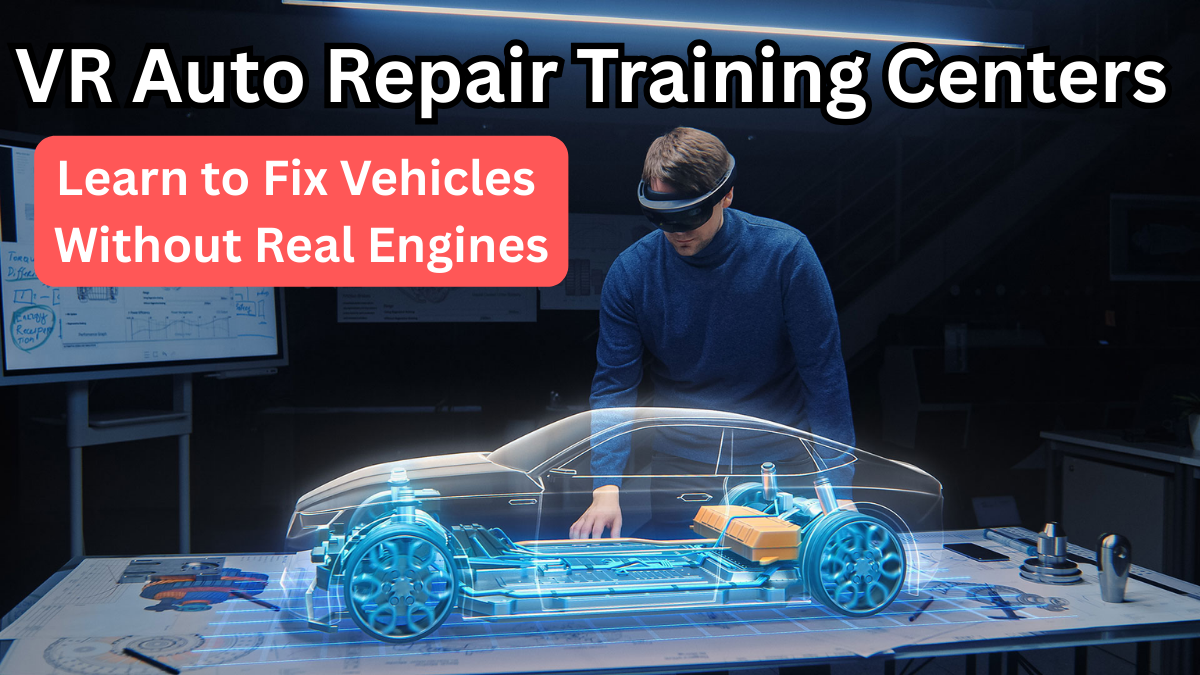The automotive industry is evolving at a rapid pace, and so is the way we train mechanics. Traditional training methods often require costly equipment, real engines, and physical space. Enter VR Auto Repair Training 2025, a revolutionary approach that allows aspiring mechanics to gain hands-on experience without ever touching a real vehicle. With immersive virtual reality tools, learners can practice repairs, diagnose problems, and build confidence in a safe, controlled environment.

What is VR Auto Repair Training 2025?
VR Auto Repair Training 2025 is an advanced learning program that uses virtual reality simulations to teach automotive repair skills. Instead of working with real engines, students wear VR headsets and interact with highly realistic digital vehicles. This approach is not only cost-effective but also significantly reduces the risks associated with hands-on mechanical training.
Benefits include:
-
Safe learning environment: No risk of injury or damage.
-
Cost-effective: Eliminates the need for expensive engines and tools.
-
Repeatable practice: Students can repeat tasks until mastery is achieved.
-
Realistic scenarios: Includes common and rare vehicle problems.
How Virtual Mechanic Courses Work
A virtual mechanic course combines VR technology with interactive learning modules. Here’s a step-by-step overview:
| Step | Description |
|---|---|
| 1. Orientation | Introduction to the VR system, controls, and safety measures. |
| 2. Basic Repairs | Practice essential skills such as oil changes, battery replacements, and brake inspections. |
| 3. Advanced Diagnostics | Diagnose complex engine issues using virtual tools and software. |
| 4. Simulated Real-World Tasks | Work on high-pressure scenarios like engine failures and accident repairs. |
| 5. Assessment & Feedback | Receive real-time feedback from instructors and automated systems. |
Advantages of Joining a VR Auto Repair Training Center
Choosing a VR-based program offers several distinct benefits compared to traditional auto repair training:
-
Flexible Learning: Practice anytime, anywhere, without the constraints of workshop schedules.
-
Environmentally Friendly: No emissions, spills, or disposal concerns from real engines.
-
Industry-Ready Skills: Prepare for modern automotive technology, including electric vehicles and hybrid engines.
-
Engaging Experience: VR simulations are immersive, making learning fun and interactive.
Top VR Auto Repair Training Centers in 2025
Several institutions have started offering cutting-edge virtual mechanic courses:
| Training Center | Location | Key Features |
|---|---|---|
| AutoTech VR Academy | Los Angeles, USA | Focus on EV and hybrid engine repairs, certified instructors. |
| DriveVR Institute | London, UK | Advanced diagnostics simulations, 24/7 VR lab access. |
| NextGen Auto Repair School | Berlin, Germany | Hands-on virtual workshops, mentorship programs. |
| MechVR Learning Hub | Tokyo, Japan | Emphasis on real-time problem-solving and global vehicle models. |
Who Should Enroll?
VR Auto Repair Training 2025 is ideal for:
-
Aspiring mechanics looking for safe and cost-effective training.
-
Professionals seeking to update skills for modern automotive technology.
-
Students and enthusiasts who want hands-on experience without physical engines.
-
Automotive businesses aiming to train staff efficiently.
FAQs About VR Auto Repair Training 2025
1. Do I need prior experience to join a virtual mechanic course?
No prior experience is required. VR courses are designed for beginners as well as professionals seeking advanced training.
2. Can VR training replace real-world hands-on experience?
While VR provides extensive simulated practice, most programs recommend a combination of VR and limited hands-on experience for complete skill mastery.
3. How much does VR Auto Repair Training 2025 cost?
Costs vary depending on the center and course level, ranging from $500 for short courses to $5,000 for advanced certifications.
4. Are these courses recognized by automotive industries?
Yes, many VR training programs are accredited and recognized by automotive companies, making graduates employable worldwide.
Click here to learn more
